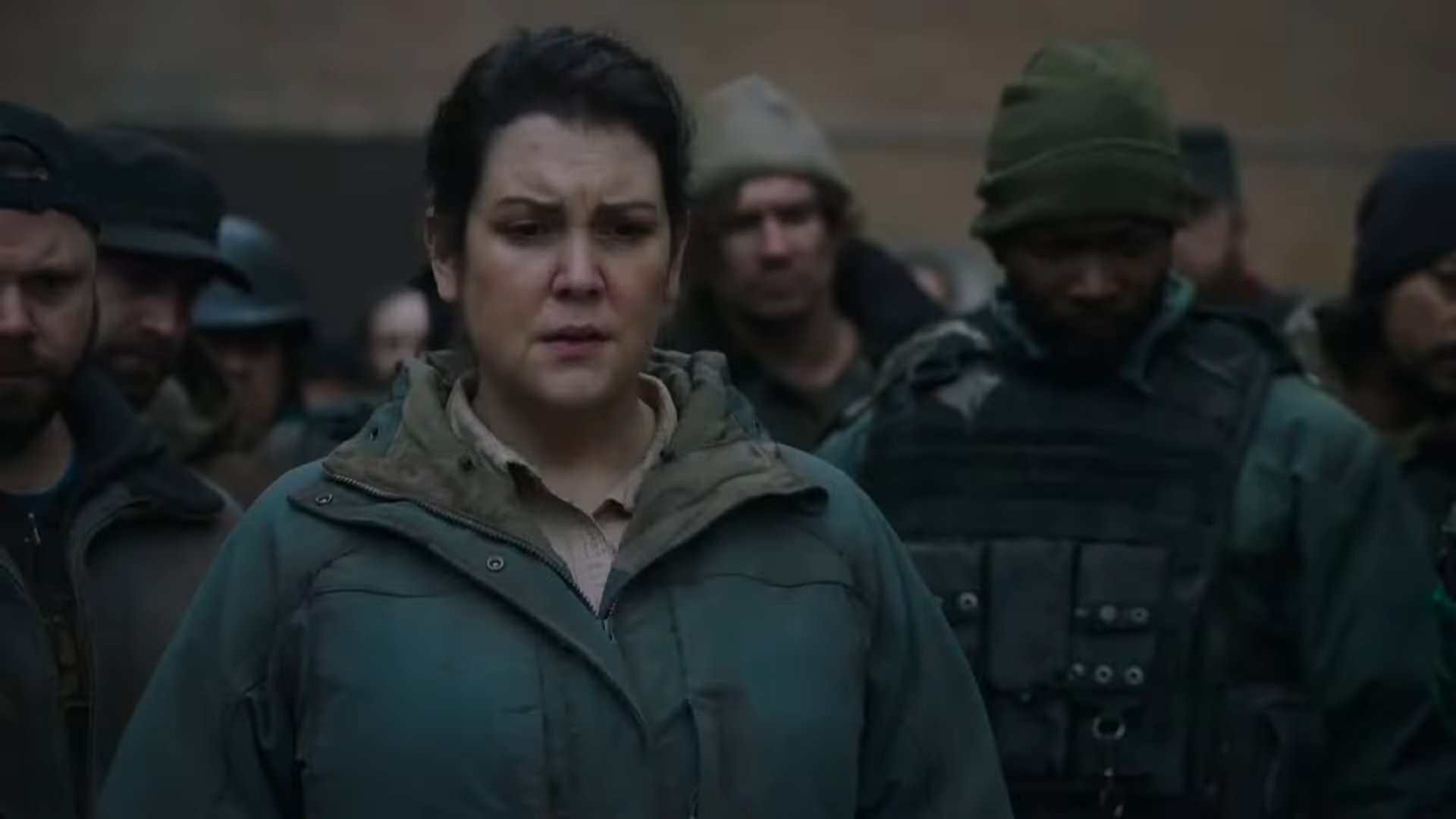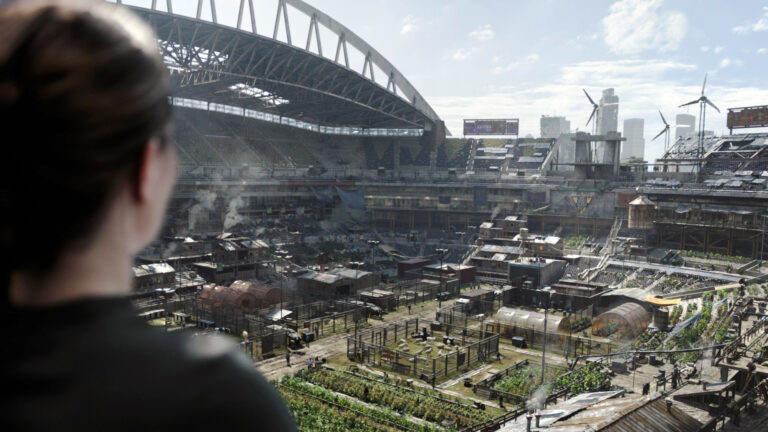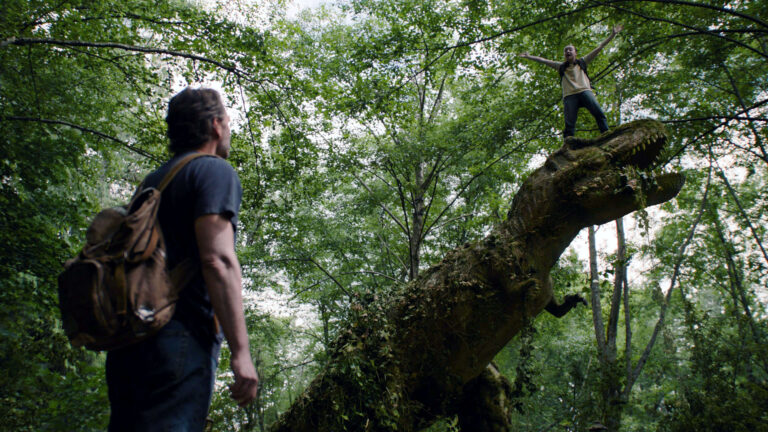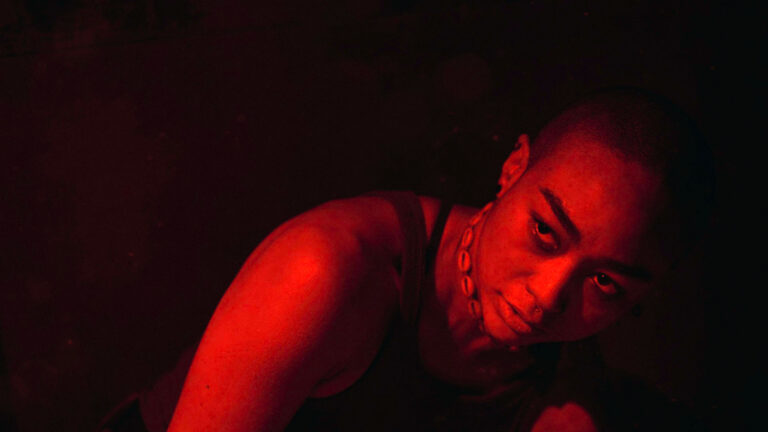Truck stops, jokes, and magazines
We open with something rare for The Last of Us: a road trip vibe. Joel and Ellie hit the highway, thanks to the truck they inherited from Bill and Frank. There’s gas, there’s open sky, and – surprisingly – there’s laughter.
Ellie, ever the chaos goblin, discovers a joke book and some vintage magazines in the backseat. Joel groans, but you can tell he’s starting to enjoy her company. Sort of. Maybe. He’s not quite ready to admit it, though.
They drive across a scarred America, seeing rusted vehicles, dead cities, and wild growth devouring what once was. And yet, Ellie can’t stop poking at Joel with bad puns and blunt questions.
Welcome to Kansas City – where things go sideways fast
Things unravel quickly when they try to bypass a blocked highway. Joel steers them into what looks like a detour, but turns out to be a trap.
A man limps into the street, begging for help. Joel instantly knows it’s a setup. He speeds forward, but it’s too late. Raiders attack, smashing the truck into a laundromat. Cue bullets, glass, and chaos.
Joel takes out two attackers. But the third? He nearly kills Joel. That’s when Ellie steps in. Shaking, she shoots the man – Bryan – in the back. He begs for his life. Joel finishes the job.
There’s no hero moment here. Just survival. Ellie looks gutted. Joel is haunted. And that, honestly, hits harder than any explosion ever could.
Kathleen enters: leader, revolutionary, wildcard
Now we meet Kathleen, the episode’s wild card. She leads the Kansas City resistance. FEDRA used to rule this place with brutality, but Kathleen and her group fought back – and won.
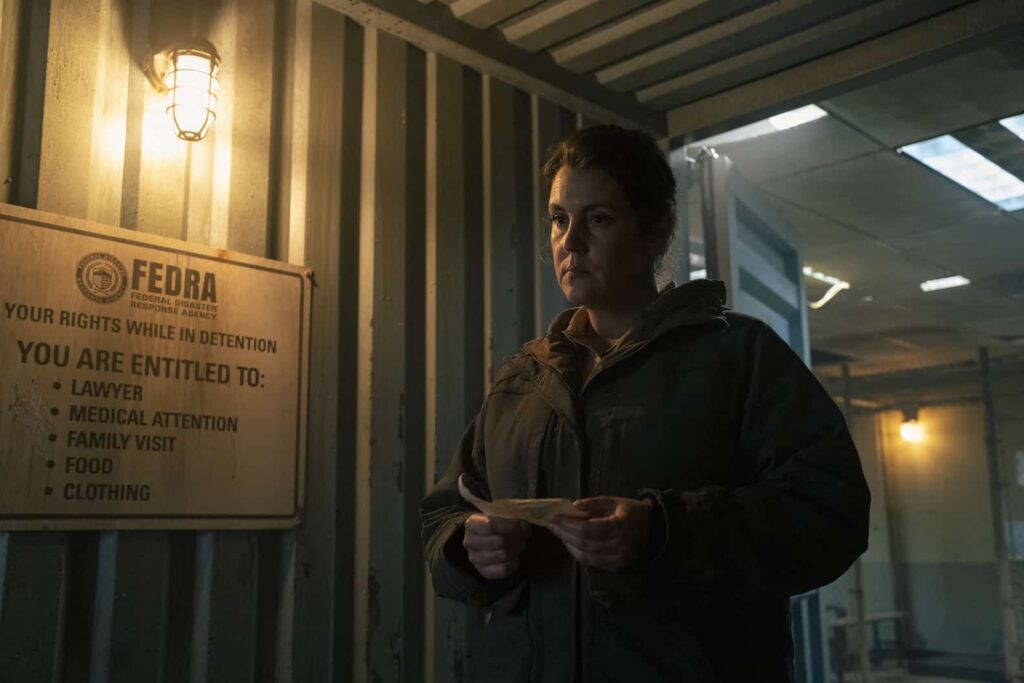
But victory hasn’t brought peace.
Kathleen’s obsessed with finding someone named Henry. Her reasons? Personal. She believes he’s responsible for her brother’s death. And she wants revenge. Not justice. Revenge.
Melanie Lynskey plays her with eerie calm and quiet intensity. She’s not evil. She’s human, grieving, and dangerous.
The ground isn’t supposed to do that
While Kathleen scours the city for Henry, her right-hand man Perry shows her something alarming. The floor of a building pulses, like something massive is trapped below it.
Whatever it is, they keep it secret – for now. But if you’ve played the game or know your apocalypse tropes, you’re probably already nervous.
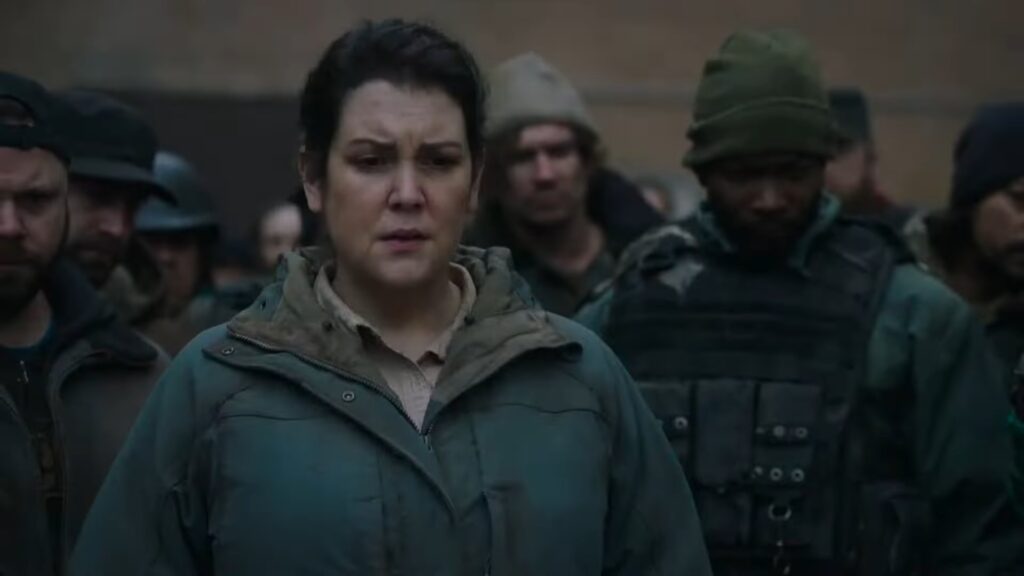
Joel, Ellie, and that difficult conversation
After the fight, Joel and Ellie take shelter in a bar. It’s quiet, dusty, and full of old booze. Perfect place to reflect.
Joel asks Ellie where she learned to use a gun. She shrugs it off. But she also reveals something bigger: this wasn’t her first time hurting someone.
It’s a small confession, delivered with hesitation. Joel listens. He doesn’t push. Instead, he teaches her how to properly grip a pistol. It’s not just a lesson in survival – it’s a silent bonding moment.
Joel is starting to trust her. He doesn’t say it out loud, but the gesture says plenty.
New enemies, old instincts
Kathleen tightens her grip on the city. Her soldiers comb through neighborhoods, hunting for Henry. But Joel and Ellie don’t know any of that.
They just know Kansas City is crawling with armed people who shoot first and ask never. So they climb an office tower to find high ground.
Joel sets up broken glass as an alarm. Ellie makes one last joke before bed. Joel actually laughs. For the first time. It’s a soft moment in a hard episode.
Surprise guests
Just when things feel calm, the episode ends with a bang – literally.
Joel wakes to find a gun pointed at his face. A boy in superhero paint stares him down. That’s Sam. Behind him is Henry.
Looks like Kathleen’s targets just found Joel and Ellie first.
Holding on to more than hands
“Please Hold to My Hand” doesn’t explode with infected chaos or massive action sequences. It does something trickier – it builds tension with people.
And it does it well. Here’s why it works:
- Ellie’s arc evolves: She’s still playful, but now she’s seen what violence costs. That spark of innocence dims.
- Joel begins to soften: He’s not ready to be a father figure. But he’s stepping closer to it.
- Kathleen complicates things: She adds nuance. She’s not a villain. She’s a warning of what revenge does to people.
This episode doesn’t scream. It simmers. And by the end, we’re left with more questions than answers – and a sense that the worst may still be below ground.

